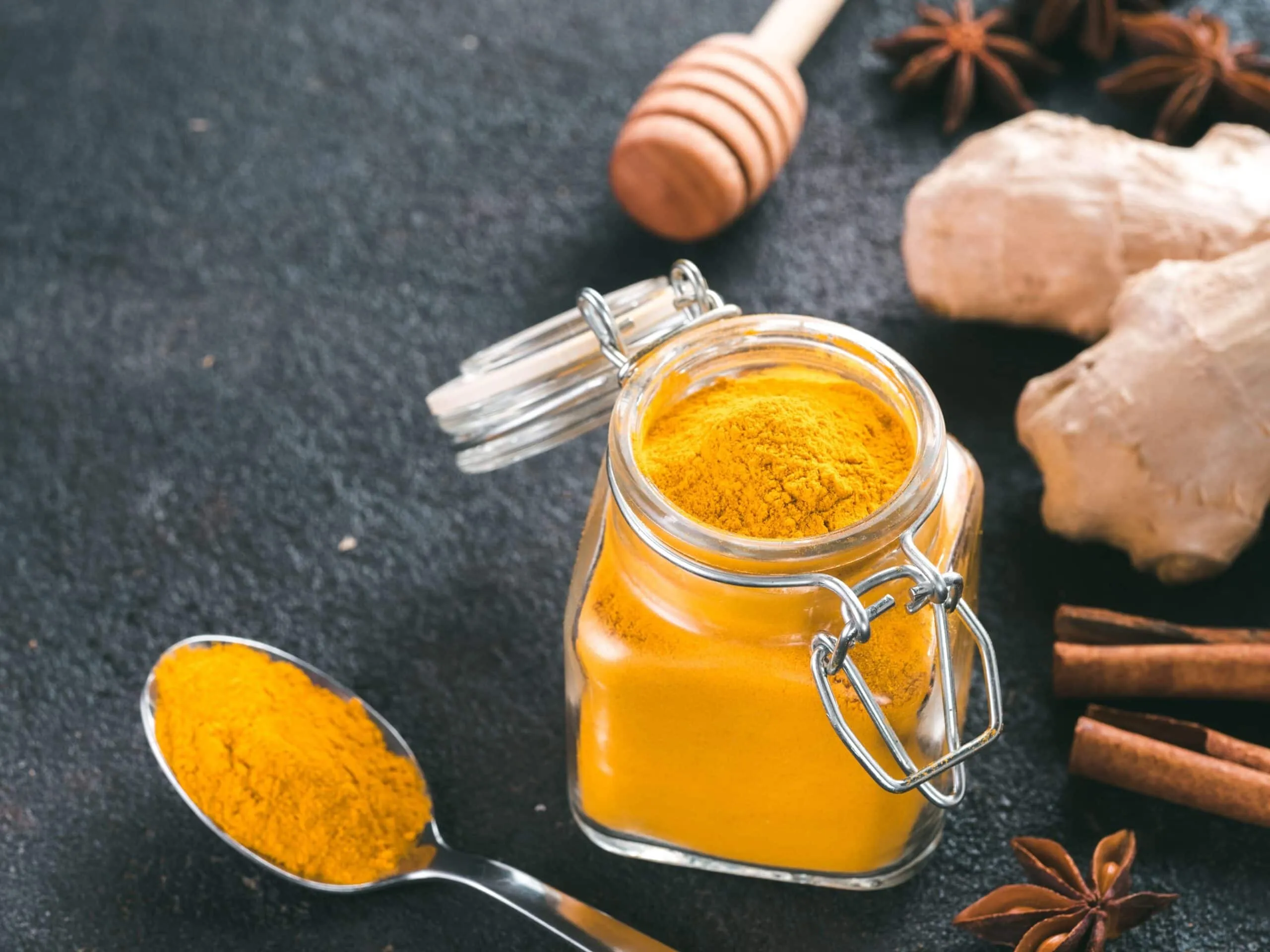What is Turmeric and How Does it Work?
Turmeric, a vibrant yellow spice derived from the Curcuma longa plant, has been a staple in traditional medicine for centuries, particularly in South Asia. Its popularity stems from its rich concentration of bioactive compounds, with curcumin being the most prominent. This powerful component is responsible for many of turmeric’s therapeutic properties, including its potential to whiten teeth. Turmeric’s mechanism of action for teeth whitening isn’t a harsh chemical process like some conventional methods. Instead, it works in a gentler manner, primarily by acting as a natural abrasive and by leveraging its anti-inflammatory and antioxidant qualities. This makes it a potentially attractive option for those seeking a more natural approach to oral hygiene and teeth whitening, which many believe is achievable through the regular use of turmeric. Understanding how turmeric interacts with teeth and gums is crucial for appreciating its effectiveness and safety.
The Science Behind Turmeric’s Teeth Whitening Properties
The science supporting turmeric’s teeth-whitening capabilities is still evolving, but initial studies suggest that the spice can contribute to a brighter smile. Turmeric contains natural compounds that can help to remove surface stains from teeth, such as those caused by coffee, tea, and other foods. The abrasive nature of turmeric, though gentle, assists in the physical removal of these stains when applied during brushing. However, it’s important to note that turmeric doesn’t drastically change the intrinsic color of teeth. Instead, it primarily focuses on eliminating external staining. The effectiveness can vary depending on the type and severity of the stains, as well as individual oral health. While turmeric may not produce the same immediate results as professional teeth whitening treatments, it can offer a noticeable improvement over time, especially when used consistently as part of a regular oral hygiene routine. Ongoing research continues to explore the full extent of turmeric’s potential in dental care.
Curcumin the Active Compound
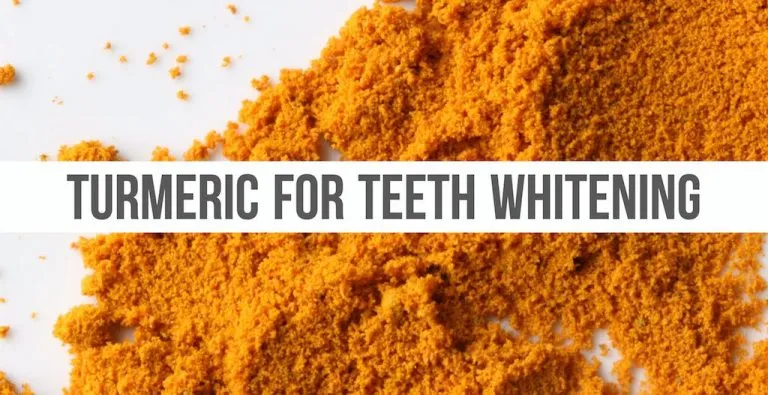
Curcumin is the most active compound in turmeric and is responsible for many of its health benefits, including its potential to whiten teeth. Curcumin has antioxidant and anti-inflammatory properties, which can help to protect teeth from damage and reduce gum inflammation. The anti-inflammatory effect is very beneficial in oral health, as it can soothe irritated gums and reduce the likelihood of gingivitis and other periodontal diseases. Moreover, curcumin has shown promise in inhibiting the growth of bacteria, further contributing to a healthier mouth. The role of curcumin in teeth whitening is multifaceted; it assists in removing stains, reduces inflammation, and promotes overall oral health, making turmeric a well-rounded solution for those looking to improve their smile naturally. The concentration of curcumin in turmeric varies, but it is generally considered a safe and effective substance.
Benefits of Turmeric for Teeth Whitening
Turmeric provides a range of benefits beyond just teeth whitening. Its natural composition allows for a gentle approach to oral hygiene, making it an appealing option for those looking to avoid harsh chemicals. The benefits extend to overall oral health, with its anti-inflammatory and antibacterial properties contributing to a healthier mouth environment. When used properly and consistently, turmeric can be a valuable addition to a dental care routine, promoting not only a brighter smile but also improved oral health.
1 Improved Stain Removal
Turmeric acts as a gentle abrasive, helping to remove surface stains from teeth. Its natural composition assists in the physical removal of stains, leading to a brighter appearance over time. Unlike some harsh whitening agents, turmeric’s gentle nature reduces the risk of enamel damage. The abrasive action is effective against stains caused by coffee, tea, and other common culprits, making it a practical option for maintaining a naturally white smile. Consistent use of turmeric can contribute significantly to stain removal and a visibly improved tooth color.
2 Natural Antibacterial Effects

Turmeric possesses natural antibacterial properties that help in reducing harmful bacteria in the mouth. By inhibiting bacterial growth, turmeric can contribute to fresher breath and a reduced risk of oral infections, promoting overall oral health. This antibacterial action is a valuable advantage, offering a holistic approach to dental care. Regular use can support a healthier oral environment, which aids in preventing common dental issues. This helps prevent problems before they start, which is more beneficial than treatments later.
3 Reduced Inflammation in Gums
The anti-inflammatory properties of turmeric can soothe irritated gums and reduce inflammation. This benefit is particularly valuable for individuals suffering from gingivitis or other gum-related issues. By reducing inflammation, turmeric supports the health and integrity of gum tissues, contributing to a healthier mouth. This anti-inflammatory effect can alleviate discomfort and protect against periodontal diseases, adding an extra layer of protection to your oral health. The result is gums that are less likely to be sensitive or bleed, leading to a more comfortable oral experience.
4 Strengthens Enamel
While not a primary function, some users report that turmeric can contribute to enamel strength due to its rich mineral content. Though it does not directly strengthen enamel, the overall health benefits provided by turmeric, such as reduced inflammation and antibacterial action, contribute indirectly to enamel health. When gums and the surrounding tissues are healthy, the teeth are better supported, preserving enamel. This indirect benefit helps in maintaining healthy and strong teeth. Proper oral hygiene with turmeric can therefore help in keeping the enamel’s integrity, leading to a healthier mouth.
5 Provides Antioxidant Protection
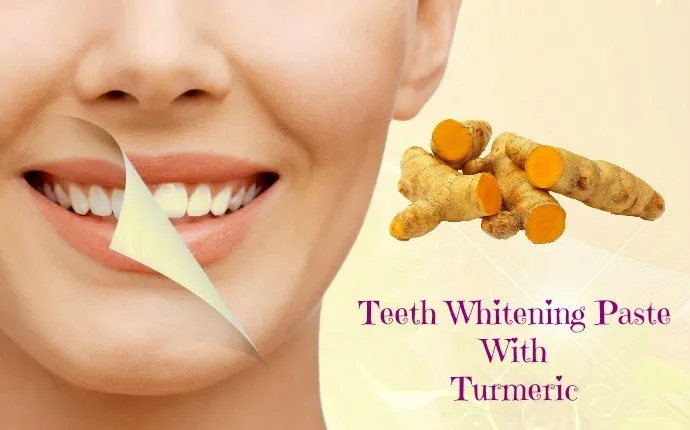
Turmeric is a potent source of antioxidants, which can protect the teeth and gums from damage caused by free radicals. Antioxidants help to neutralize these harmful molecules, contributing to a healthier oral environment. This protection can help to prevent premature aging of the teeth and gums, maintaining their health and appearance. By incorporating turmeric into your oral hygiene routine, you’re adding a layer of defense against cellular damage, thus contributing to long-term oral health and a brighter smile.
6 Cost-Effective Solution
Compared to professional teeth whitening treatments and many over-the-counter products, turmeric is a cost-effective option. The spice is readily available and relatively inexpensive, making it an accessible choice for those seeking to improve their smile. The affordability of turmeric allows for consistent use, which can yield noticeable results over time. This makes it a practical solution for maintaining a bright and healthy smile without breaking the bank. It also can be easily added to your existing oral care routine.
7 Safe for Sensitive Teeth
Turmeric is generally considered safe for individuals with sensitive teeth. Its gentle abrasive action is less likely to cause irritation or discomfort, unlike some harsh whitening agents. People with sensitive teeth often find turmeric a more comfortable and effective option for maintaining a bright smile. The natural anti-inflammatory properties of turmeric can also help to soothe sensitive gums. This makes turmeric an excellent choice for those looking for a whitening solution that is both effective and gentle, ensuring that oral care does not cause discomfort.
How to Use Turmeric for Teeth Whitening
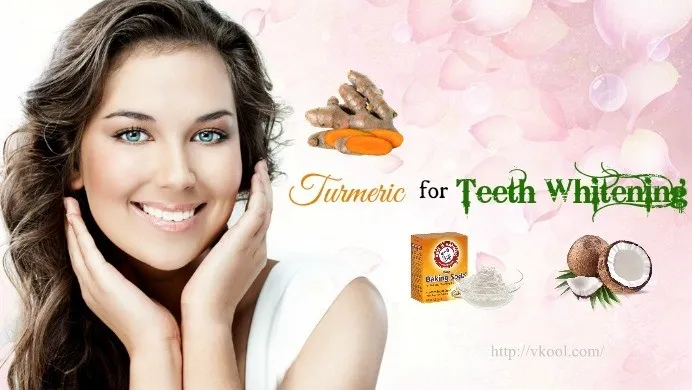
Incorporating turmeric into your oral hygiene routine is relatively simple. It’s usually mixed into a paste or used as a powder, and applied during brushing. Consistency is key; regular use over time will yield the best results. Always use a soft-bristled toothbrush to prevent damaging the enamel. After brushing with turmeric, rinse thoroughly with water to remove any residue. Consider these simple methods to easily integrate turmeric into your daily care.
Turmeric Paste Recipe
Making a turmeric paste is a popular and effective way to use the spice for teeth whitening. Mix turmeric powder with a small amount of water to create a paste-like consistency. You may also add a tiny bit of coconut oil for added benefits, such as moisturizing and antibacterial properties. Gently brush your teeth with the paste for about 2-3 minutes, making sure to reach all surfaces. Rinse thoroughly with water. This method allows for targeted application and is easily integrated into your daily routine. Remember to brush gently to avoid over-abrasion.
Turmeric Powder Application
For a more straightforward approach, you can apply turmeric powder directly to your toothbrush. Dip your slightly wet toothbrush into the powder and brush your teeth as usual. Focus on covering all surfaces of your teeth with the turmeric. Brush gently for about 2-3 minutes and rinse thoroughly. This method is quick and easy, making it convenient for daily use. Ensure that you brush carefully to avoid spilling the powder and maintain a clean environment.
Turmeric Oil Use

Turmeric oil can be mixed with other essential oils to create a mouthwash or can be used as an ingredient in a homemade toothpaste. The oil’s properties contribute to oral health and it can provide extra benefits such as additional antibacterial action and improved gum health. If you choose this method, ensure that you dilute the turmeric oil properly before use, as concentrated essential oils can be too potent. The use of turmeric oil allows for versatility in your oral care routine.
Precautions and Considerations
While turmeric is generally safe, there are a few precautions to keep in mind. It can stain clothing and surfaces, so care should be taken during preparation and use. Some individuals may experience temporary staining of their toothbrush, so it’s best to use a dedicated toothbrush for turmeric. Always use high-quality turmeric and follow the instructions carefully. Consulting with a dentist is recommended, especially if you have any existing dental issues or sensitivities. These precautions ensure a safe and effective experience.
Potential Side Effects of Turmeric Use
Although rare, some individuals may experience side effects such as temporary staining of the teeth or mild gum irritation. Excessive use may lead to increased sensitivity. It is very important to be careful about how often you use it. If you experience any adverse reactions, discontinue use and consult with a dentist. Monitoring your body’s response to turmeric is key to ensure the best possible outcome. Most people don’t get any side effects from the proper use of turmeric in their daily dental hygiene.
Consulting a Dentist before Use
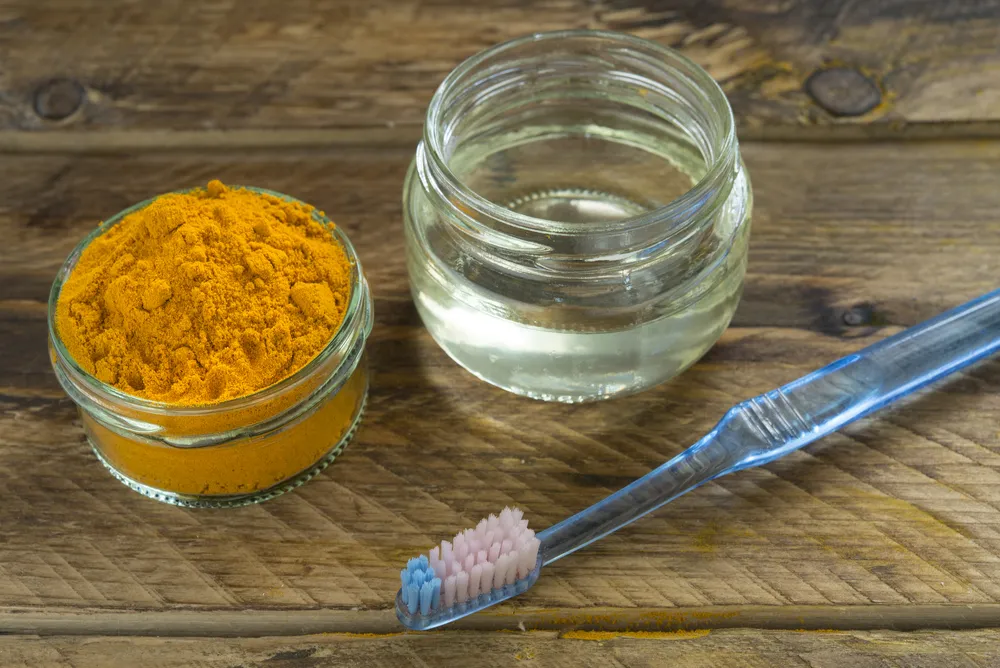
It is always advisable to consult with a dentist before incorporating turmeric into your oral hygiene routine. They can provide personalized advice based on your specific dental needs and health conditions. A dentist can also assess the suitability of turmeric for your teeth and gums and can make recommendations. Seeking professional guidance helps to ensure that you use turmeric safely and effectively, enhancing your oral health. Professional advice is particularly useful for those who have existing dental problems or sensitivities.
Conclusion
Turmeric offers a natural, cost-effective, and potentially beneficial approach to teeth whitening and oral health. Its numerous advantages, from stain removal and antibacterial effects to its anti-inflammatory properties, make it an appealing alternative to conventional treatments. However, it’s essential to use turmeric responsibly and in conjunction with a regular oral hygiene routine. The best way to achieve a brighter smile is through consistency, patience, and professional dental advice. By combining the use of turmeric with good oral practices, you can move towards a healthier and more radiant smile.
